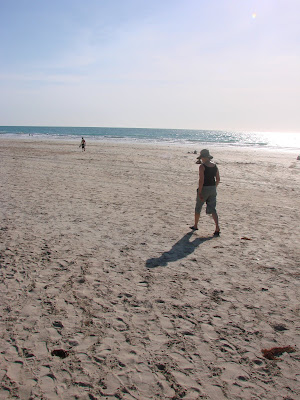POETICA25/10/2008 15:00
30/10/2008 15:45
Slammin’ and Jammin’URL: http://www.abc.net.au/rn/poetica/stories/2008/2358026.htm
Highlights from the Slams and Jams across the country over the last year. Recorded at live events, this program features excerpts from live performances of Australian and international poets including Shane Koyczan, Wire MC, Alana Hicks, Amanda Stewart, Seung Baek, Tug Dumbly, Ania Walwitz, Benito DiFonzo, Phil Norton, Jeltje and Unamunos Quorum, Luke Wright, Robin Archbold, Vivienne Glance and Miles Merrill.
LINGUA FRANCA25/10/2008 15:45
30/10/2008 15:45
Italian Language in the World WeekURL: http://www.abc.net.au/rn/linguafranca/stories/2008/2398262.htm
For the 8th annual Italian Language in the World Week, the journalist and author Beppe Severgnini explains this year's theme of Italian in the piazza, a particular kind of gathering place that has been described as 'the concrete representation of language'.
SHORT STORY26/10/2008 08:30
Proof of Innocence by Tom Petsinis, read by
Matthew O'SullivanURL: http://www.abc.net.au/rn/shortstory/stories/2008/2400391.htm
An innocent man is imprisoned and eventually sentenced to death. During this time, he starts to lose his conviction that he did not commit the crime.
26/10/2008 15:35
Story 2 by Christopher Cyrill, read by David Tredinnick
URL: http://www.abc.net.au/rn/shortstory/stories/2008/2400395.htm
On a man’s return from India, the insights he has gained stay with him.
AIRPLAY26/10/2008 15:00
Six White Boomers by Paul LivingstonURL: http://www.abc.net.au/rn/airplay/stories/2008/2388012.htm
Act One: Sydney suburbia 1969, The Barkers Nest Public School Reunion.
Timothy, Douglas, May, June and Marisa are attending the 10 year school reunion for the class of '59. It's a small gathering so nametags probably won't be necessary. It's the loved-up sixties - bellbottoms, patchouli oil, pot and war.
Act Two: Sydney suburbia 1999, The Barkers Nest Public School/Greenington College Reunion.
Timothy, Douglas, May, June and Marisa are attending the 40 year school reunion for the class of '59. And as usual it's very small turnout. It's the uninspiring nineties - hostile takeovers, holidays on the central coast, Kylie Minogue and war.
THE BOOK SHOWMonday to Friday 10:00am (repeated at midnight)
27/10/2008
Peter Goldsworthy: Everything I KnewURL: http://www.abc.net.au/rn/bookshow/stories/2008/2400364.htm
Australian novelist, essayist, librettist and poet Peter Goldsworthy talks about his new novel Everything I Knew. It's set in Penola, South Australia, in 1964 when Miss Peach, a new teacher on a scooter who's the spitting image of Audrey Hepburn, comes to town and fourteen-year-old Robbie Burns sits up and takes notice.
28/10/2008
Public figures, private livesURL: http://www.abc.net.au/rn/bookshow/stories/2008/2400386.htm
Is the private life of a public figure a proper subject for biography? And how does a biographer decide what to reveal and what to screen from public gaze? Historian David Day has written biographies of three public figures: Ben Chifley, John Curtin and Andrew Fisher. He discusses balancing the need to explore the private landscape of subjects with a duty to be discrete about other people's lives.
29/10/2008
Writing the Future: the first Asia-Pacific festival of writingURL: http://www.abc.net.au/rn/bookshow/stories/2008/2400469.htm
Professor Rukmini Bhaya Nair, poet and editor of the Indian Literary journal Biblio, is one of the organisers of the first Asia-Pacific Festival of Writing, being held this month in New Delhi and the Indian hill-station town of Shimla.
30/10/2008
Philip Gourevitch, editor of The Paris ReviewURL: http://www.abc.net.au/rn/bookshow/stories/2008/2400414.htm
31/10/2008
Marilynne Robinson's HomeURL: http://www.abc.net.au/rn/bookshow/stories/2008/2400421.htm
Marilynne Robinson, author of the Pulitzer Prize-winning Gilead, has written a new novel Home. It takes place in the same period and the same Iowa town of Gilead. It's the story of Jack, prodigal son of the Boughton family and godson of John Ames.
THE BOOK READINGMonday to Friday 2.00pm
23/10/2008 - 30/10/2008
Dr Jekyll and Mr Hyde by Robert Louis Stevenson, read by Joss Ackland, production by Jane MarshallURL: http://www.abc.net.au/rn/bookreading/stories/2008/2198535.htm
For copyright reasons this reading is not available as audio on demand.
The haunting and sinister Victorian mystery about a good man and his terrifying alter ego. When an angry fiend assaults a small girl an inquisitive lawyer begins to question the erratic behaviour of his friend, the well-respected Dr Jekyll. The lawyer's investigations reveal a story so frightening, so horrific that he can scarcely believe it.
FIRST PERSONMonday to Friday 10.45am
27/10/2008 - 31/10/2008
My First Seven Years (plus a Few More) by Dario Fo, production by BBC RadioURL: http://www.abc.net.au/rn/firstperson/stories/2008/2375036.htm
This memoir is a delightful and irreverent account of Dario FO's childhood in the late 1920s and early 1930s, growing up on the shores of Lake Maggiore in northern Italy. Fo was born in 1926, and spent his early years moving from town to town as his father, a stationmaster, was given new postings. He moved to Milan in 1940 to study at an art academy. After the war, as Italian theatre underwent some radical shifts, his attention turned to stage design and then to writing for the stage. In the 1950s, along with his wife Franca Rame, he formed a theatre company to present his satirical works, which earned him public acclaim and also, in many cases, the ire of the authorities. In the years since he has built an impressive body of work as a playwright, director, actor and composer. Dario Fo received the Nobel Prize for Literature in 1997

.JPG)
.JPG)
.JPG)
.JPG)
.JPG)




.JPG)
.JPG)
.JPG)
.JPG)
.JPG)
.JPG)
.JPG)
.JPG)
.JPG)



.JPG)
























.JPG)
.JPG)
